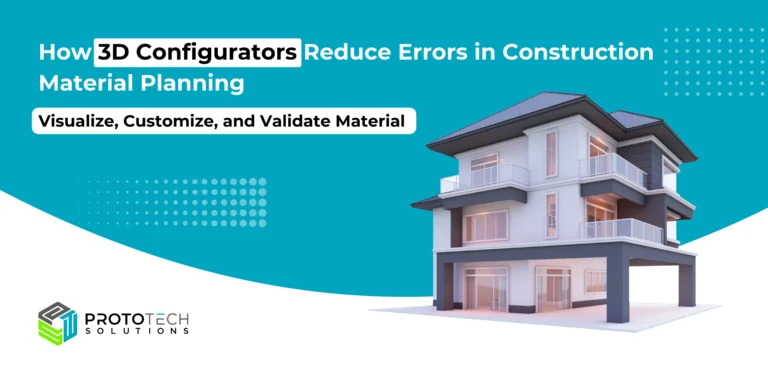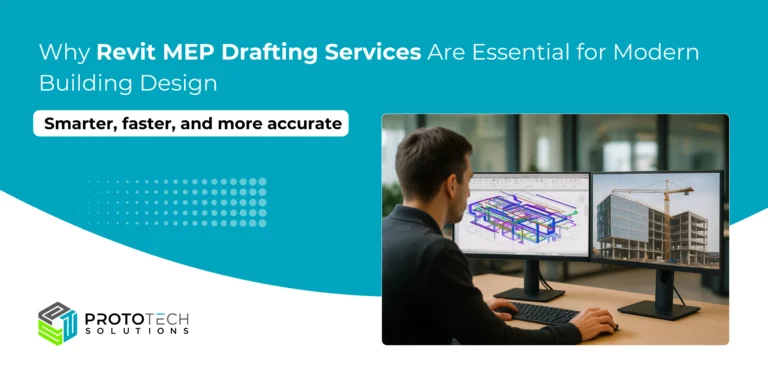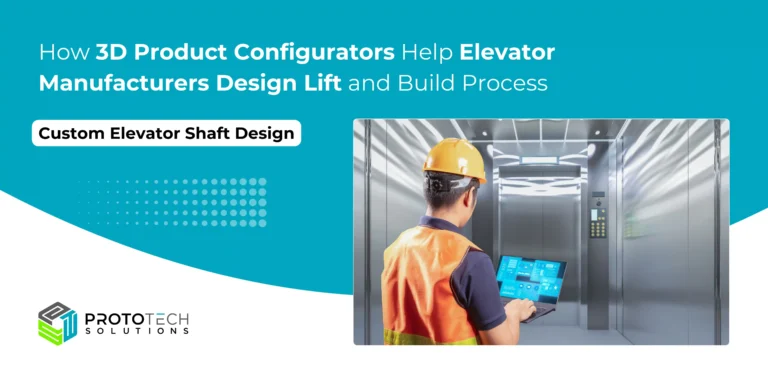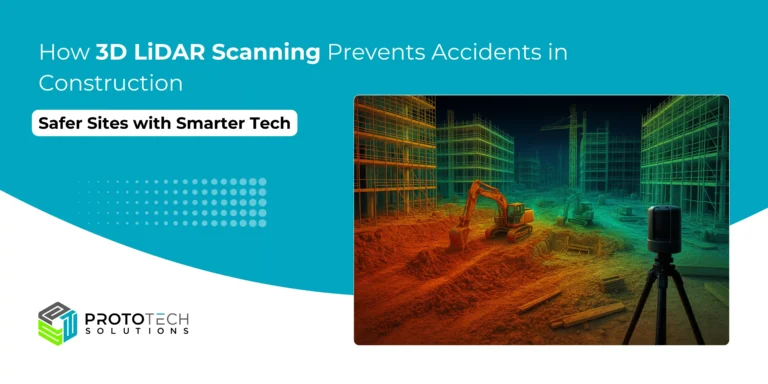EVs and 3D Configurators: How Electric Car Brands Are Innovating
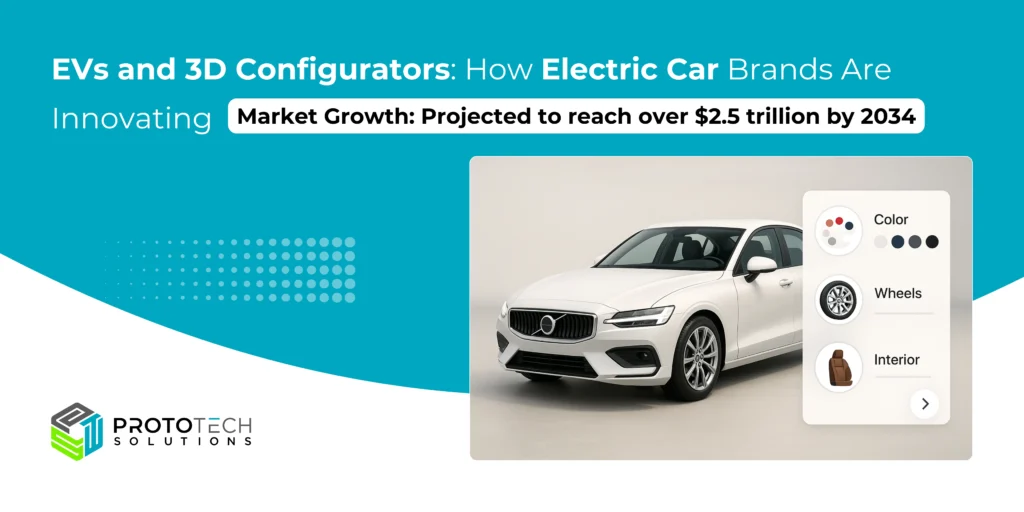
The global electric vehicle (EV) market is expected to experience rapid growth in 2025, with a market size estimated at nearly $989 billion and projected to reach over $2.5 trillion by 2034. This year, EV sales are expected to surpass 20 million units, accounting for one in four new cars sold globally, driven by strong demand in China, Europe, and emerging markets. Industry forecasts predict continued double-digit growth, fueled by sustainability policies, technological innovation, and expanding model variety, positioning EVs at the center of tomorrow’s automotive landscape.
The global shift toward electric vehicles (EVs) is reshaping the automotive industry. With consumers increasingly focused on sustainability, innovation, and technology, car brands must adapt their customer experiences to meet these expectations.
Modern buyers want immersive online experiences that mirror the innovation of EV technology. To meet this demand, brands are turning to advanced digital solutions, such as the 3D car configurator, which enables customers to explore, customize, and visualize vehicles with unprecedented detail. By offering immersive and interactive journeys, EV brands are not only capturing customer interest but also setting new benchmarks for transparency, trust, and engagement.
Why EV Brands Benefit from 3D Configurators
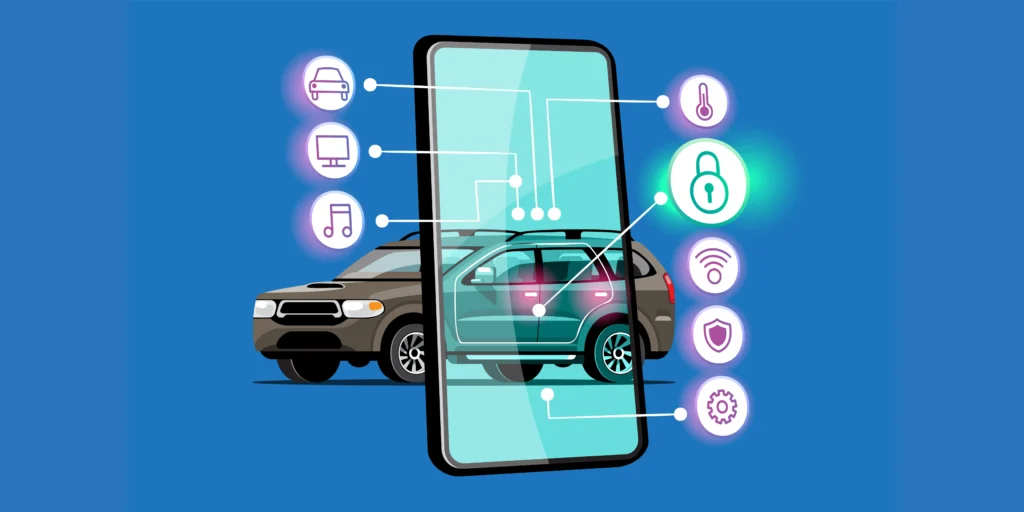
For electric car manufacturers, adopting digital configurator technology isn’t just an option; it’s a strategic necessity. EV buyers are often early adopters who value innovation and sustainability. Offering a car configurator appeals directly to this audience, giving them control over personalization while reinforcing the forward-thinking image of EV brands.
Vehicle personalization has become especially important as consumers look for eco-conscious options tailored to their lifestyles. Configurators allow buyers to select sustainable interior finishes, explore color palettes influenced by nature, or configure performance settings suited to different driving habits. By using an automotive configurator, EV companies also improve transparency by showcasing exactly what customers can expect, from design elements to estimated range.
Most importantly, these digital tools elevate engagement. Instead of browsing static images or brochures, a shopper can immerse themselves in a virtual exploration of their future car. This interactivity creates emotional connections that help convert interest into long-term brand loyalty.
Standout Features of a Modern Automotive Configurator
A high-performing vehicle configurator goes beyond basic visualizations. Today’s leading platforms offer 360-degree views, letting customers rotate, zoom, and examine EVs in stunning detail. With a virtual car customizer, buyers can try different paint schemes, adjust wheel styles, or switch between interior trims instantly.
- 360-Degree Product Views: Customers can rotate, zoom, and explore every angle of their chosen EV, mimicking the in-person showroom experience.
- Exterior and Interior Customization: From paint finishes and wheel types to dashboard materials and ambient lighting, users enjoy complete control over personalization.
- Eco-Friendly Visualizations: Buyers can preview sustainable upholstery, solar charging options, or aerodynamic add-ons that align with green values.
- Technology Demonstrations: Range estimates, charging times, and connected features can be visually explained through the virtual car customizer, making EVs more approachable for first-time buyers.
EV matchmakers like battery range visualization make configurators especially relevant for first-time buyers. Interactive graphics can demonstrate how different configurations affect range or charging needs, addressing common concerns around EV ownership. Some automotive configurators even simulate eco-friendly textures, such as vegan leather or recycled materials, giving customers a more tangible sense of sustainability.
By combining these elements, configurators reduce uncertainty while sparking excitement. For customers unfamiliar with EV technology, configurators serve as digital showrooms where questions about driving range, charging options, or performance modes are answered visually. This transparency empowers buyers and helps reduce uncertainty, a critical factor in EV adoption.
Real-World Applications: How EV Leaders Use Configurators
Several leading carmakers have already embraced the impact of configurator technology. Tesla pioneered the concept with its online-first approach, allowing customers to design and purchase vehicles directly from its website, eliminating dealership friction. Lucid Motors has followed suit by offering a refined 3D car configurator with emphasis on luxury details and innovative range options.
Rivian, another EV innovator, integrates its virtual car customizer to empower adventure-focused buyers, showcasing accessories like roof racks and camp kitchens through immersive digital previews. Even traditional automakers, such as BMW and Mercedes-Benz, are introducing automotive configurators specifically for their electric lineups to create consistent digital-first customer experiences.
These examples highlight how configurators reduce dependency on physical dealerships, making the buying journey more efficient. They also establish credibility and trust by showing customers transparency in costs, features, and eco-friendly upgrades, elements critical for EV adoption.
The Future of 3D Car Configurators in the EV Market
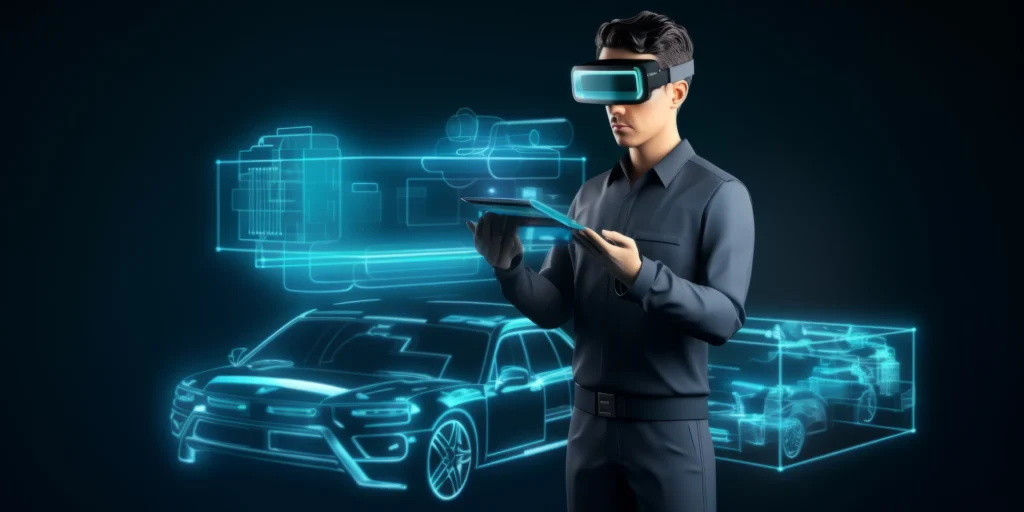
Looking ahead, the 3D car configurator will play an even greater role in shaping how EVs are sold. With artificial intelligence (AI), configurators will soon predict buyer preferences and suggest optimal configurations based on lifestyle factors. Imagine an AI-driven system that recommends charging infrastructure support or suggests sustainable upholstery aligned with the customer’s values.
Augmented and virtual reality integrations will take personalization a step further, enabling customers to experience their EV in their driveway through AR apps or sit virtually inside their future vehicle using a headset. These immersive technologies will turn a simple automotive configurator into a fully interactive showroom.
The emphasis on sustainability will also grow. Configurators will allow deeper exploration of recycled and eco-conscious materials, carbon footprint estimates for different builds, and integrations with broader sustainability initiatives. As EV adoption accelerates, configurators will continue bridging the gap between curiosity and confidence, ensuring the purchase process remains as innovative as the cars themselves.
Conclusion
The rise of electric vehicles has fueled demand for equally innovative digital shopping experiences. By leveraging the 3D car configurator, EV brands are reimagining the customer journey, building transparency, enriching personalization, and making advanced technology relatable to buyers. From Tesla’s online-first model to next-generation AR integrations, configurators are proving essential in differentiating EV brands and deepening customer loyalty. For the future-focused automotive industry, configurators are no longer optional; they are critical tools connecting innovation on the road with innovation online.
Are you looking for a more immersive, interactive way to design your next electric vehicle, from paint color to interior materials, without ever stepping inside a dealership?
At ProtoTech Solutions, we empower the electric vehicle (EV) manufacturing industry by developing robust, custom-tailored 3D car configurator solutions that streamline the entire vehicle personalization process. By leveraging our expertise in 3D visualization, real-time rendering, and rules-based logic, we enable automakers and e-mobility startups to deliver highly interactive and immersive shopping experiences online.
Our integration capabilities connect these tools seamlessly with your ERP, CRM, and manufacturing systems, accelerating time-to-market.
Let’s build the future together. At ProtoTech Solutions, we help innovators turn ideas into reality with powerful 3D technology. From 3D visualization, CAD automation, AR/VR technologies to immersive configurators, our expertise enables faster decisions, smarter workflows, and engaging customer experiences. Contact us today.

